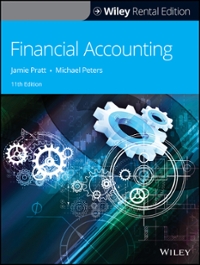1. Would Mr. Curtis be able to defer recognition of the gain since he is receiving an installment note? Explain. Does the fact that Mr. Curtis is considered a nondealer affect his reporting and payment requirements for tax purposes? Explain. 2. Identify and discuss possible actions that might result in a more favorable tax consequences. Include a discussion of any negative consequences of such actions to the other parties involved.
CURTIS BROTHERS BAKERY INC. Curtis Brothers Bakery, Inc. (Bakery) is a calendar year, accrual basis C corporation. Its principal business is the baking and wholesale distribution of various bread and pastry products. Bakery has a single class of voting common stock outstanding. The 1,200 outstanding shares are owned as follows: Number of shares Mr. Darryl Curtis Mr. James Curtis Charles Curtis (son of James Curtis) Daniel Curtis (son of James Curtis) Sean Curtis (daughter of James Curtis) Curtis family trust D. and J. Curtis Investments 350 300 100 100 100 200 50 Total shares 1,200 Brothers Darryl and James Curtis are equal general partners in D. and J. Curtis Investments. The partners contributed the Bakery stock to the partnership in 1985 for use as collateral for certain partnership debt. This debt has long since been repaid. James and his wife Hazel Curtis established the Curtis family trust in 1992. First National Bank of St. Louis is the independent trustee, and the Curtis's various minor grandchildren are the only beneficiaries. (This is not a grantor trust for Federal tax purposes.) Darryl Curtis is President, and James Curtis is Chairman of the Board of Bakery. Charles, Daniel, and Sean Curtis are all employees of the corporation, and earn substantial salaries. During the past several years, Mr. James Curtis has become less interested in involving himself in the corporation's business. His disinterest has resulted in considerable friction between him and his three children. After extensive and sometimes bitter discussion, all of the shareholders have agreed that it would be in the best interest of the corporate business if (1) James immediately resigns as Chairman of the Board, and (2) Bakery redeems his 300 shares of stock in the corporation. James has a tax basis in his 300 shares of $875,000. The redemption is tentatively scheduled to take place on January 1, 2001. Bakery will finance the redemption by issuing a 15-year installment note to James Curtis in the amount of $3,600,000, the independently appraised fair market value of his shares. Bakery will make equal annual principal payments of $240,000, the first payment to be made on January 1, 2002. The note will provide for 9 percent simple interest per annum on the unpaid balance payable every January 1. Assume that the 9 percent simple interest is equal to the applicable Federal rate in effect under Section 1274(d) on January 1, 2001, compounded semiannually. As of December 31, 1999, Bakery had accumulated earnings and profits of $6,290,000. Prorata cash dividends for 2000 are expected to total $200,000. The corporation's projected income statement for 2000 is attached. 1 2001 PricewaterhouseCoopers James Curtis refuses to commit to the terms of the redemption until he fully understands and can accept the tax consequences to him. Therefore, the Curtis family has retained you to determine the tax consequences to both Mr. Curtis and Bakery of the proposed redemption. The continuing shareholders particularly want to know the amount of Bakery's accumulated earnings and profits immediately after the redemption. Be as specific as possible in responding to their questions, and provide suggestions and/or alternatives that might result in more favorable tax consequences to the parties involved. Curtis Brothers Bakery, Inc. Projected Income Statement For Year Ending December 31, 2000 Revenues from sales Cost of sales Gross Profit $4,319,000 (975,000) $3,344,000 Deductions: Salaries and wages Interest on business debt Business taxes (payroll, state and local) Operating expenses Depreciation* $ 988,000 71,000 340,000 350,000 159,466 $1,908,466 Net income $1,435,534 Federal income tax payable (34%) 488,082 Net income after taxes $ 947,452 *ACRS depreciation deduction on 18-year recovery property (cost $1,800,000) placed in service on January 1, 1985 equaled $100,000. MACRS deduction on 7-year property (cost $340,000 and class life 12 years) placed in service on March 12, 1998 equaled $59,466. 2 2001 PricewaterhouseCoopers







